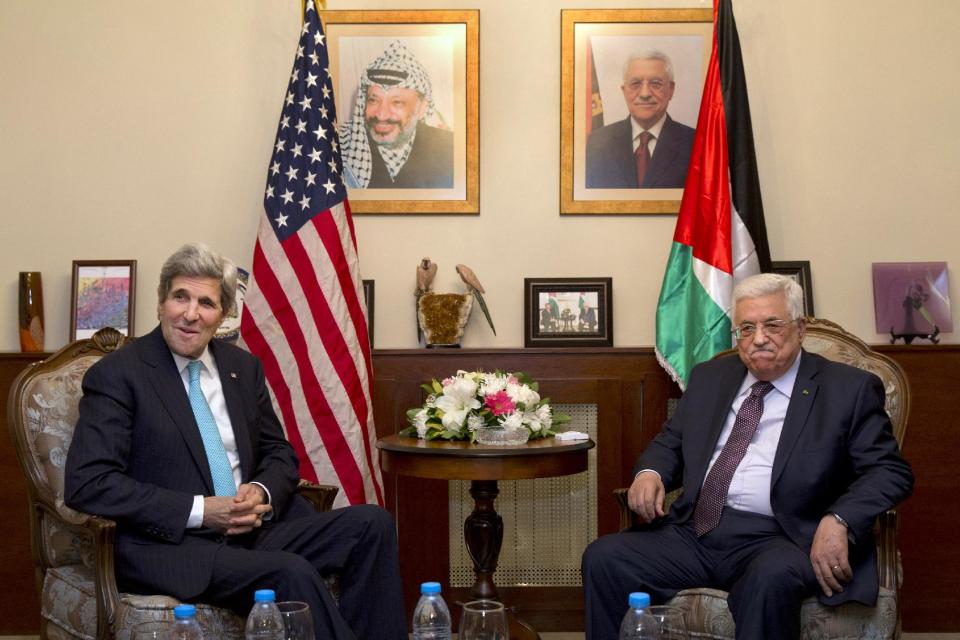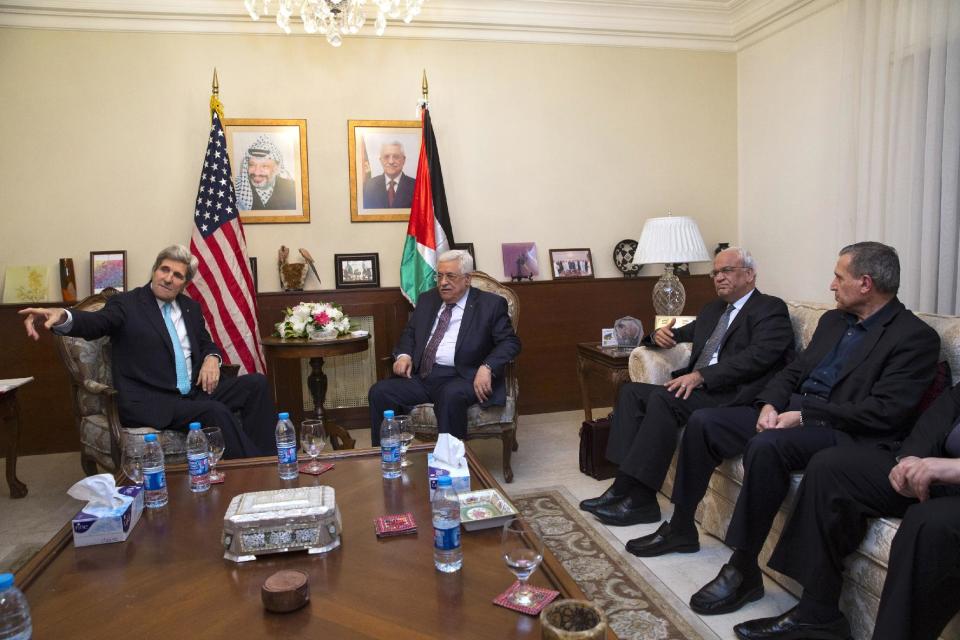Kerry meets Abbas as peace process founders
AMMAN, Jordan (AP) — U.S. Secretary of State John Kerry met Wednesday with Palestinian President Mahmoud Abbas in a bid to salvage foundering Mideast peace talks that were dealt a new blow when Arab leaders said they never would recognize Israel as a Jewish state.
Kerry and Abbas spoke for more than four hours over a working dinner in the Jordanian capital of Amman that U.S. officials said were "constructive." No other details of the meeting were released. Kerry planned further talks with Abbas and with Israeli Prime Minister Benjamin Netanyahu in the coming days.
Kerry flew from Rome to Amman to see Abbas as negotiations approached a critical April 30 deadline for a settlement. The Palestinians have threatened to walk away before then unless Israel releases a group of prisoners, as it agreed to, by Saturday.
Speaking to reporters earlier Wednesday in Kuwait, Abbas said he still was waiting to receive a formal framework proposal from Kerry. He said there have been no talks on extending negotiations beyond the April deadline, adding that the coming month would be "a very important period."
Wednesday's announcement by the Arab League, blaming Israel for a lack of progress in the Mideast peace process, put up another roadblock. The communique, issued at the end of a two-day summit, also rejected "the continuation of settlements, Judaization of Jerusalem, and attacks in its Muslim and Christian shrines."
The League's announcement that it would not recognize Israel as the homeland of the Jewish people rejected a key demand of Netanyahu. The Palestinians say such recognition would undermine the rights of Palestinian refugees and Israel's Arab minority.
In Amman, Kerry met first Wednesday with Jordan's King Abdullah II before the dinner with Abbas. Kerry planned to return to Rome on Thursday to join President Barack Obama at meetings with Pope Francis and Italian officials.
Kerry will then join Obama in Saudi Arabia on Friday and Saturday.
___
Associated Press writers Josef Federman in Jerusalem and Hamza Hendawi in Kuwait City contributed to this report.


